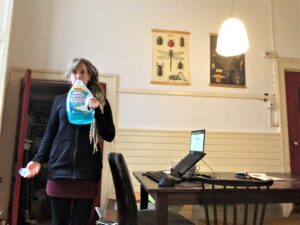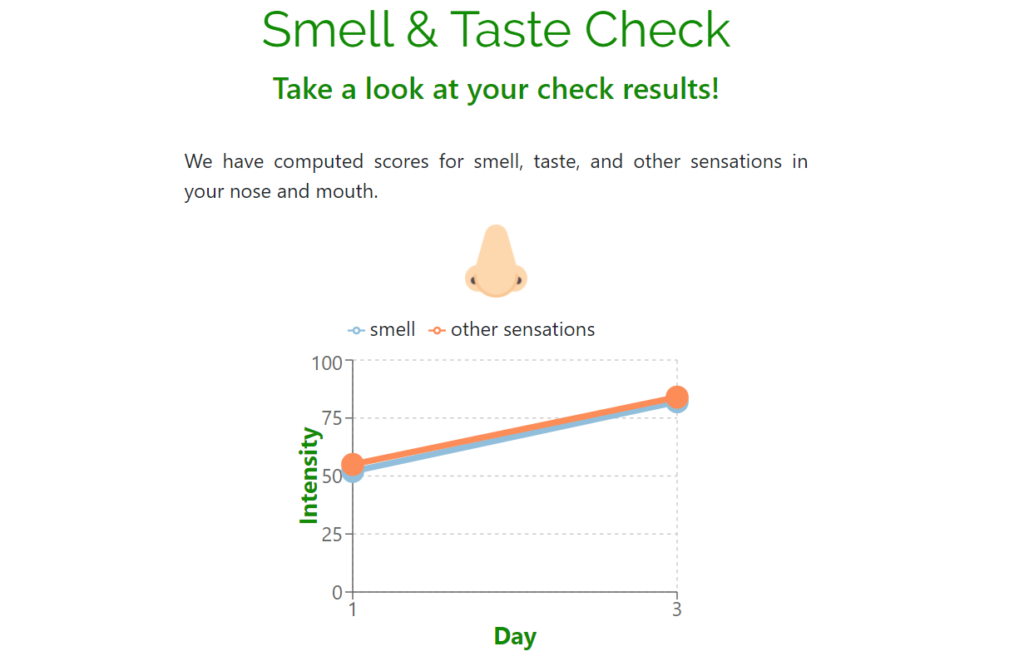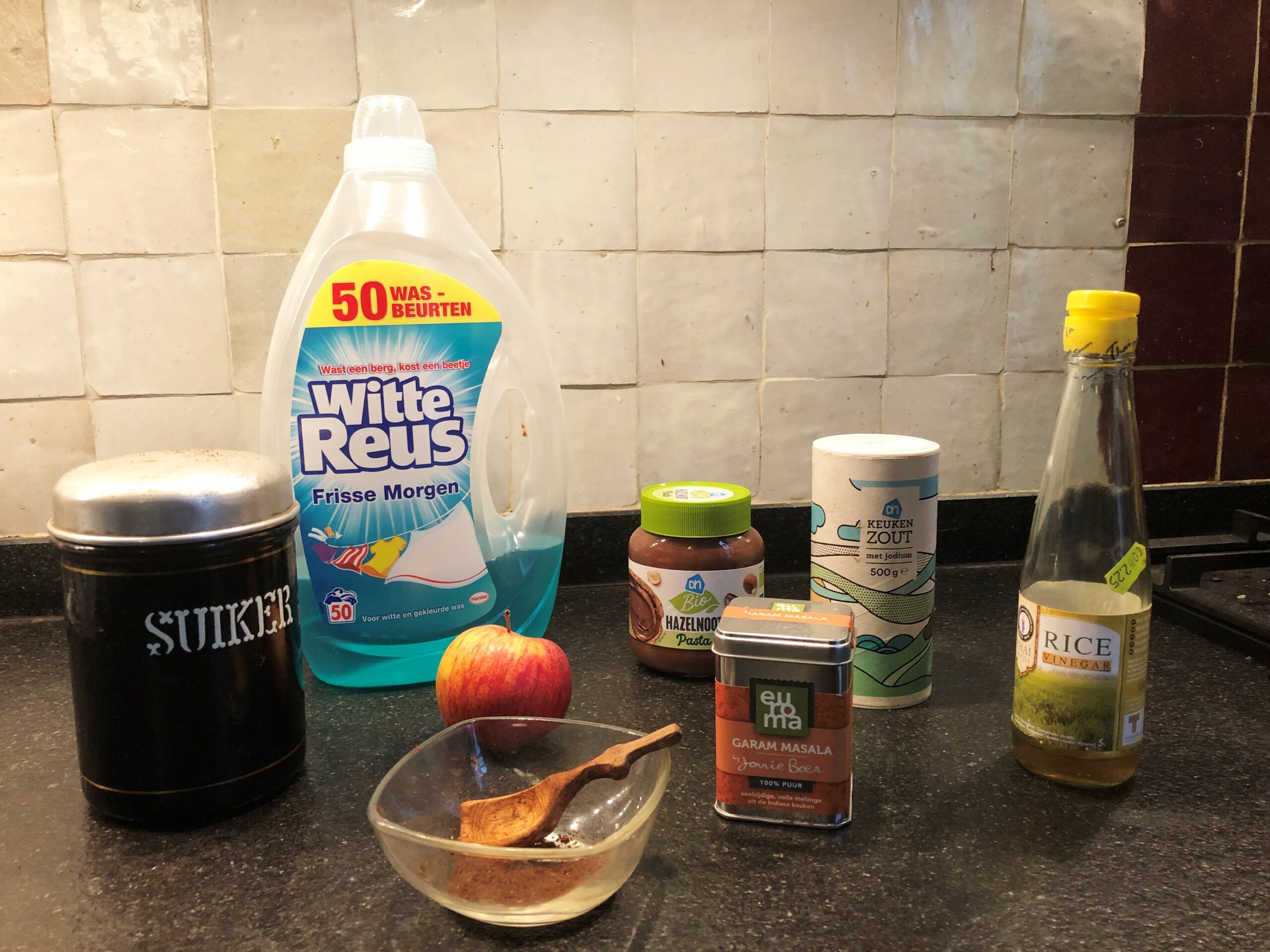A COVID-19 infection may lead to all sorts of symptoms, ranging from a cough to diarrhoea. One of the most frequently reported symptoms, and thus an excellent indicator of the virus, is a sudden loss of taste and smell. Some two-thirds of all corona patients experience this symptom. Researchers at Human Nutrition and Health contributed to developing a home test to quantify this loss. We spoke to associate professor Sanne Boesveldt on the how and why of this test.
How
‘At the end of March, we launched an extensive study (in collaboration with the Global Consortium of Chemosensory Research) on the loss of taste and smell in relation to COVID-19,’ Boesveldt states. ‘We wanted to know how frequently this occurs, and how the complaints differ from, for example, a common cold.’ As a point of departure, an online survey was developed, available in over 30 different languages, which has currently been completed by some 50,000 participants.
Analysing the first data gave rise to more questions. How long do these symptoms persist, and how severe are they? And: how trustworthy are the results? Boesveldt: ‘In the survey, respondents assess their own taste and smell, and previous studies have shown self-assessment is not always dependable. Thus, we have developed a more objective home-test.’
That was far from easy. The test must be carried out across the globe, at home. ‘We looked for products that are widely available, and that people have in their homes.’ Shampoo, salt, spices, coffee and lemon juice, for example. These products must be smelled and sampled and assessed in terms of intensity. The results are then presented in a graph.

Photo: Coretta Jongeling
Why
If you have a severe cold, you generally don’t smell all that much. What added value does this test have? Are people not able to judge whether they have lost their sense of smell? ‘When corona first appeared, we did not know much about the loss of smell and taste. It could develop slowly so that it goes unnoticed for a while. We are now aware that the loss of taste and smell develops very suddenly. But the symptoms can persist for a long time, so performing this test regularly helps assess possible improvements. The data are also relevant to our researchers, we want to know how long the symptoms persist, and what complaints people retain.’
The results show that the loss of taste and smell from COVID-19 differs from the same issues as a result of the common cold or flu. In those cases, the nasal membranes are swollen and infected, which results in a limited airflow through the nose, reducing the sense of smell. ‘With corona, the loss of smell is not related to nasal congestion. This suggests there is a different mechanism behind this symptom. However, there is also a loss of taste, so that patients are less able to discern sweet, salt and bitter flavours, as well as spicy sensations.’
How (2)
How this works is not yet clear. That the virus latches on to the Ace-2 receptors is a known fact. Boesveldt: ‘these receptors are found inside the nose. They are not scent receptors, but in the cells that surround those receptors, a supporting cell. The virus affects these supporting cells, and, in doing so, effectively undermines the sense of smell.’ But why this effect can persist for such a long time is not known. ‘This applies to many long-term effects of COVID. It is new terrain, and we are constantly learning. In the beginning, I would tell patients: it will be over in two weeks. Time and the virus teach us that this is not the case. We have adjusted our own expectations and explanations as we go along.’
Test the test
As it happens, I have a cold (not corona!). So, I delve into my kitchen cabinets and grab a selection of things I can taste and smell. I do the test twice: once on Friday, while I still have a rather severe cold, and once on Monday, when I feel a bit better. Using the slider to indicate the intensity of the scent is quite challenging, but, because you taste and smell different products, it feels more accurate than having to assess how well you can smell in just one instance. Unsurprisingly, my sense of smell improved significantly, and I feel much better than before the weekend. My sense of taste has not changed much, in line with my own perception.


 These products help you test your sense of taste and smell. Photo: Coretta Jongeling
These products help you test your sense of taste and smell. Photo: Coretta Jongeling